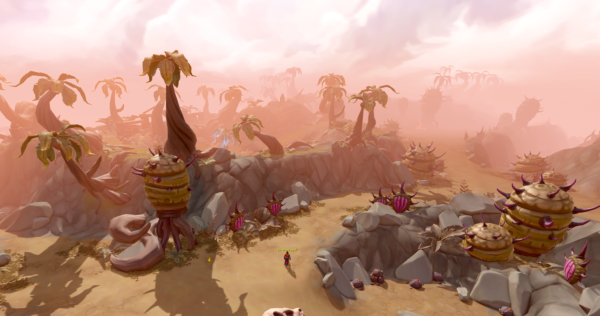Alex’s Analysis – The Simplest Changes are Often the Hardest
posted by Alex 43 on 7th August 2020, at 4:23am | Discuss ArticleThe fine folks at Jagex had released a new beta showcasing a new groundbreaking feature! The last few times they had done this, it was to showcase RuneScape 2, The Evolution of Combat, NXT, or RuneScape Mobile. All of these were pretty big ground-breaking changes in RuneScape that desperately needed player feedback in order to maintain and discover how they could be balanced.
So, what amazing feature do we have a whole Beta server to test out?
You can raise your camera up and down (in addition to UI scaling, but that’s another article)!
…
… yeah. That’s pretty much it. You can zoom out a bit more, but otherwise you can simply raise the camera and get a better view of the surrounding world.
Oh, but what a view it is!

Why does something like this need a beta, you may ask? It doesn’t change any of the gameplay or anything. What’s going on?
Well, see, that’s where you’re wrong. This looks like a relatively simple change, but there’s a lot more to it than you think.
For starts, the very act of raising the camera to an offset means that it will go beyond what was originally a pre-determined height. This means that there’s the risk that various polygons of tall models, like building roofs and towers, might end up viewed at an angle they were never intended to be. This may cause disorientation, breaking the immersion, and possibly even seizures if the colors mess around. To help with performance, a LOT of shortcuts are taken with rendering, meaning that it would not be common for polygons to be one-sided and have some sort of behind-the-scenes extras to aid in saving memory. The earlier days of NXT saw the world gradually constructing around the player with texture maps loading and models gradually rendering one after another; this is one example of this sort of thing.
Second, if you guys recall, during the construction of the NXT engine, there was the concern regarding the visibility of Crandor and Entrana from the west coast of Falador and Taverley. This was corrected by a neat sort of “invisible if here” algorithm to make it seem like the islands were not within… well, dog-paddling distance. By increasing the view distance, this may happen again throughout the map, and with RuneScape as big and diverse as it is (not just the overworld, but the underground as well), a Beta can be used to enlist the entire player-base to go exploring and report trouble spots like that.
Third, with the addition of height comes the need for extra render distance. Looking at the picture above, most of that is dealt with by using fog and a limited model sky-box. The trees far away in the fog don’t necessarily need their texture loaded; they can just take on a black hue that is influenced by adding the fog coloring around them. This sort of procedure is called mip-mapping, where far-away objects can take on much simpler textures, and they can be progressively and, quite often, secretly updated to more higher resolutions as the player approached. That being said, despite this practice the distance needed to increase, which adds models. Simple models, but models never the less. This threatened performance in select complicated areas like Anachronia and Prifddinas, and possibly even popular boss areas like Telos and Solak. If the game suddenly crashed due to high performance while players were halfway through a glorious battle… well, that wouldn’t bode well for the comments forum.
Large-scale, high intensity graphics sorts of games are not so easy to manage. The more detailed the environment, the more processor is needed to render it. A simple act of increasing the draw distance has heavy implications and often requires a lot of optimization work for it to remain in a stable state. As such, think of it more like increased draw distance being a side-effect for the optimization. Rather than “we can see more because it’s faster”, it’s more like “we managed to make it faster, so now we can see more”. A side-effect, not a feature.
And as time goes on, and more and more algorithms are figured out and refined, it will just keep on getting better and better. It’s a struggle, but it’s one that’s well worth it in the end.
Until next time,
Cheers, cannoneers!


